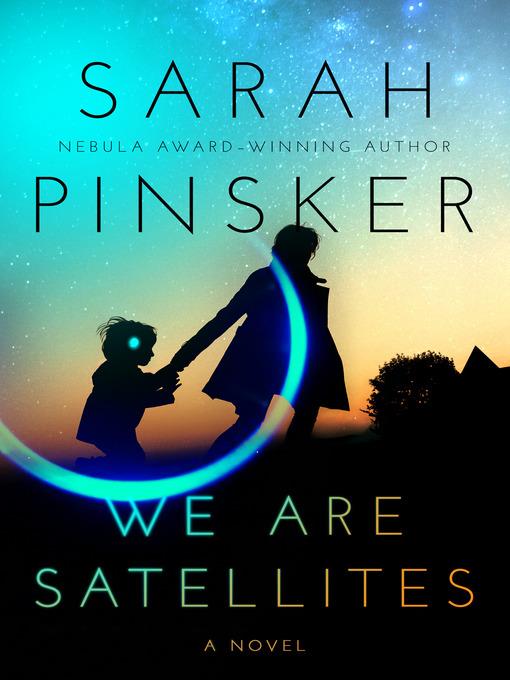
We Are Satellites
کتاب های مرتبط
- اطلاعات
- نقد و بررسی
- دیدگاه کاربران
نقد و بررسی

December 14, 2020
Nebula Award winner Pinsker’s cold and cerebral latest (after A Song for a New Day) revolves around technological haves and have-nots who are divided by class, disability, and ideology. Teacher Val and political staffer Julie come from underprivileged backgrounds, and their marriage has immersed them in suburban life, with two kids and a money pit of a house. Enter the Pilot, a new technology for enhancing brain function via a stimulating implant. It quickly becomes a fad: first Val’s wealthy students and then Julie’s congressman boss sport the Pilot’s tell-tale blue lights at their temples, and soon David, the couple’s teenage son, has one. The family, though, shies away from the implications of his enhanced capabilities until he announces his decision to join the military’s new program for people with Pilots. Meanwhile, David’s sister Sophie, whose epilepsy makes her ineligible for implantation, must confront being a have-not in a neural-enhanced world. It’s a slow-developing narrative, marred by slight characterization and check-the-box inclusion of topical issues. Pinsker raises fascinating questions about technology that will appeal to fans of hard science fiction, but the story itself too often reads like dry reportage. Agent: Kim-Mei Kirtland, Morhaim Literary.

Starred review from March 1, 2021
If everyone else is doing it, why shouldn't you? This is the question asked by one family--Val and Julie, and their children David and Sophie--when the brain-enhancing device called a Pilot is introduced to the world. First comes David, a teen struggling at school and wanting to keep up with his friends. Then Julie, as her colleagues at the congressional office each get one. But Val and Sophie are left behind; by choice for Val, and because Sophie's seizures will not allow it. As society integrates Pilot with subsidies, the divide becomes more clear. What happens when decisions begin to pull at the woven family structure, as David enlists in the Army, and Sophie becomes an anti-Pilot leader? There is always another side to the coin, and the answers are ones that many will go to great lengths to hide. VERDICT Pinsker's (A Song For A New Day) meticulous research and melodious prose bring readers to the heart of a family and the challenges of societal expectations, technology, and the desire to advance without fully understanding the consequences.--Kristi Chadwick, Massachusetts Lib. Syst., Northampton
Copyright 2021 Library Journal, LLC Used with permission.

April 15, 2021
Pinsker's debut novel, A Song for a New Day (2019), was eerily prescient. Now, she takes an unflinching look at the impact of brain enhancement tech in a world where innovation is primarily profit-driven. David's mothers hesitate but ultimately agree when their son asks for a Pilot, a brain implant that improves productivity and multi-tasking. But as the Pilot becomes the standard, changing everything from school curricula to job hiring practices, Val and Julie's worries only grow. They have seen how those without the tech get left behind, and worry about their epileptic daughter, Sophie, who can't get an implant. The last thing David wants to do is add to those worries--which is why he doesn't tell them that something seems to be horribly wrong with his implant--something the doctors refuse to hear. Pinsker's newest is a carefully crafted sci-fi web stretched over an intensely human core: the loving and complicated family, from Val and Julie's struggle to protect their children, to David's quest to be heard, to Sophie's growth into a fierce anti-Pilot activist. As Pinsker tells their story, issues of discrimination, ableism, transparency, and more weave together to create an intricately told cautionary tale.
COPYRIGHT(2021) Booklist, ALL RIGHTS RESERVED.

























دیدگاه کاربران